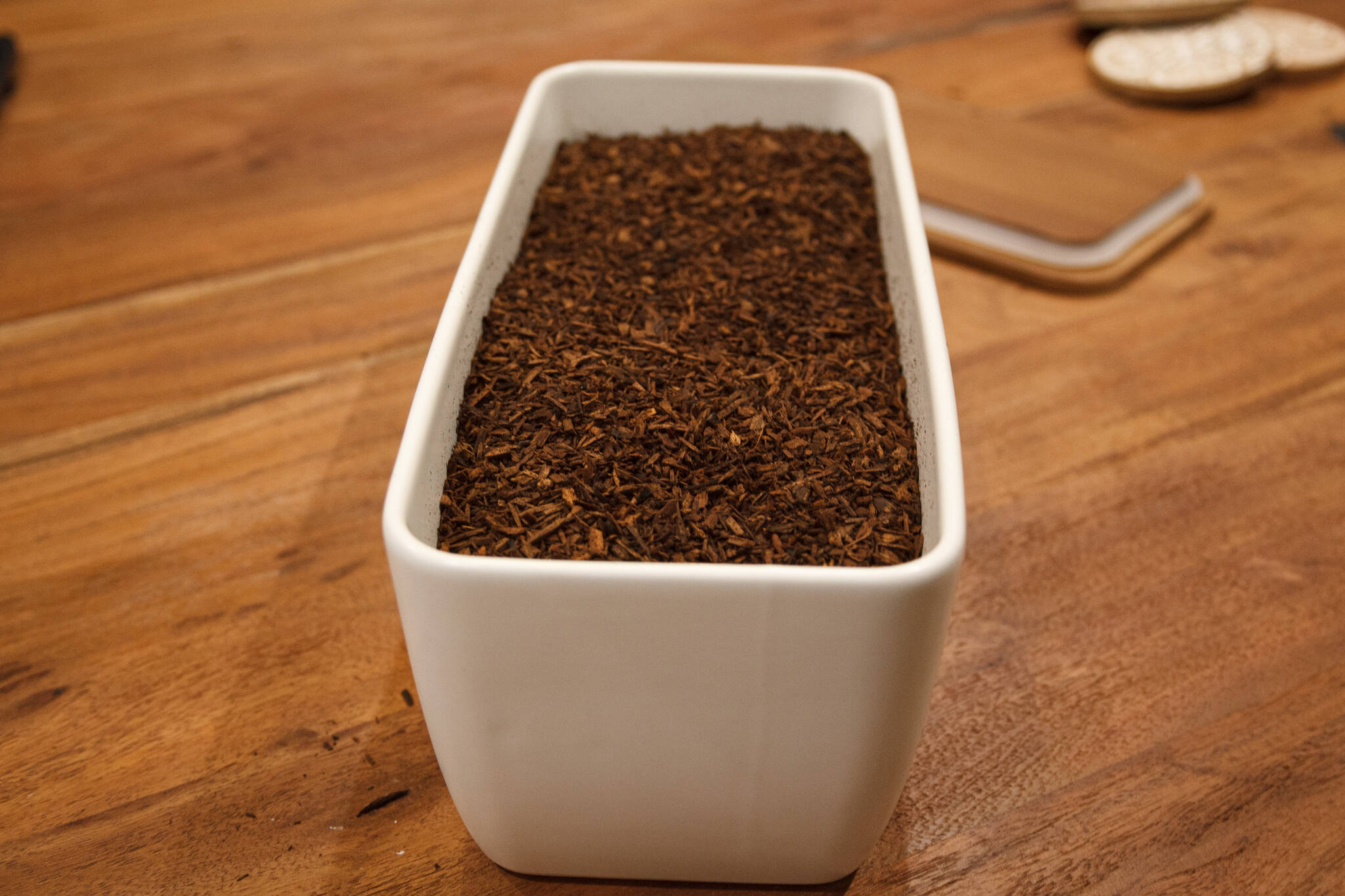Return Home, Washington’s largest “terramation” or human composting company, has been up and running in Auburn since June 2021, but they offer more than just compost.
Return Home also offers grieving family and friends the chance to process their grief in a new way, not only by providing life-giving soil, but by allowing them to be there throughout the process, CEO Micah Truman said.
Traditional processes like burial or cremation happen fast, usually within a few weeks after death. That leaves families scrambling to make arrangements and say their final goodbyes all while processing their grief, Return Home funeral director Katey Houston said.
Terramation at Return Home, on the other hand, takes 60 days before the soil is ready to be used, so people can visit their loved ones at any time throughout the process, Truman said.
The 60 days is closer to a cycle of grief that people go through after the death of a loved one, Truman said. One man stops by Return Home’s facility every once in a while to visit with his late wife over a cup of coffee, Truman said.
Return Home prides itself on the quality of care they provide the deceased and their family, Truman and Houston said.
The process begins when each person is bathed and then dressed in compostable cotton clothing before being placed on top of an organic bed of alfalfa, sawdust and straw in a steel cell, Truman said. After the person is placed, Return Home covers their body with more organic material, then seal the cell.
After 30 days, the cell is rotated in a giant contraption Return Home had specially engineered and built, Truman said. At that point the cell is opened, the bones are removed and degraded, then returned to the cell and sealed for another 30 days.
Once those 30 days pass, clean, fertile soil is put into burlap bags stamped with the deceased person’s name and returned to the family to use or spread across a plot of land Return Home owns in Kent.
Return Home aims to be a source of joy and hope that comes to people during the darkest times in their lives, Truman said.
The environmental aspect of terramation is what made Houston leave her job as a traditional funeral director.
“I had been a traditional funeral director for 15 years and then the laws changed here and I began to question everything I had previously believed about funeral services,” Houston said. “I felt like at home I was doing everything I could as an individual to be a better steward of the earth, and then going to work and putting formaldehyde into bodies.”
The disconnect between Houston’s passion for environmentalism and what she did at her job grew over the years, Houston said. In addition to the environmental aspect, she didn’t like rushing families through their grief in order to fit the traditional funeral schedule.
The carbon footprint of cremating a loved one isn’t something people typically think about, but they should. Cremating one body releases around 500 pounds of carbon dioxide into the air. Annually, cremations in the U.S. alone release 360,000 metric tons of carbon dioxide into the atmosphere.
After a body is cremated, the organic material that once made up a body can’t be used for anything productive, Truman said.
On the other hand, terramation releases around 50 pounds of carbon dioxide into the air — only a fifth of cremation, Truman said. In addition to this, after the terramation is done, the soil is high quality and can be used to grow plants and trees.
The only thing added to the process of terramation other than organic matter and a body is air and water, Truman said. One terramation draws enough air to power one-third of a hair dryer, Truman said.
“Environmentally, I think the end product is ultimately what drew me to Return Home,” Houston said. “I was tired of telling families ‘please don’t put these cremated remains on your plants because it will kill them,’ to give something back that is essentially life giving is something I’ve never experienced.”
The idea of giving back is what draws people to Return Home as well, Houston said. The idea of being turned into something that can continue to sustain life after a person dies is comforting to a lot of people, Houston said.
Return Home has the capacity to terramate 74 people a month, Truman said.
There are two other terramation facilities in Washington, but Return Home is the largest and it is the only one that allows people to visit their loved one during the process, Houston said.
In a way, terramation isn’t a new concept. People have buried the dead for thousands of years, and under the right conditions, after a few months the body will turn to soil.
However, Return Home and other terramation companies are the first to do this in a precise way, Truman said.
“This is the first time that, in a really controlled, careful environment, we’re able to transform bodies into soil with precision,” Truman said. “Washington state is the first place on the planet to legalize this.”
Since Washington legalized terramation, Oregon and Colorado have followed suit, Truman said.



